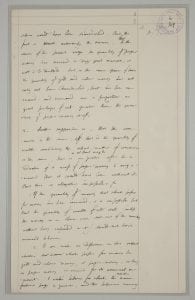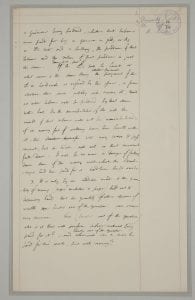Project update – volunteers credited for first time in Collected Works of Jeremy Bentham!
By uczwlse, on 6 September 2018
It’s hard to believe it but September marks the 8th birthday of Transcribe Bentham! And we have something else to celebrate this month too…
It is with great pleasure that we can announce that a large number of volunteers will be credited for the first time in the latest volumes due to be published by the Bentham Project.
Since the initiative began in September 2010, Transcribe Bentham volunteers have put an enormous amount of effort into transcribing Bentham’s writings and we owe them a huge debt of gratitude.
The thousands upon thousands of volunteer transcripts constitute a unique online resource but they also feed directly into the work of Bentham Project researchers who are editing Bentham’s writings for publication as The Collected Works of Jeremy Bentham. Transcripts produced by volunteers mean that researchers do not have to transcribe everything from scratch – they have an accurate first draft for further editing. The accuracy and efficency of volunteer transcription is discussed further in our latest article published in Digital Scholarship in the Humanities and written by Tim Causer, Kris Grint, Anna-Maria Sichani and Melissa Terras.
Pre-publication volumes of two volumes of Bentham’s Collected Works are now available in open access, in advance of their forthcoming publication by Oxford University Press.
- Writings on Political Economy, vol. III: Preventive Police, edited by Dr Michael Quinn
- Writings on Australia, edited by Dr Tim Causer
11 volunteers have been credited in Writings on Political Economy, vol. III (see p. viii of the ‘Editorial Introduction’).
34 volunteers have been credited in Writings on Australia (see the ‘Editorial Introductions’ to ‘History of Jeremy Bentham’s dealings with Lord Pelham’, p. v; ‘Letter to Lord Pelham’, p. viii; ‘Second Letter to Lord Pelham’, pp. vi-vii; ‘Third Letter to Lord Pelham’, p. vi; and ‘A Plea for the Constitution’, p. ix).
Both volumes can be consulted freely online and will interest anyone intrigued by Bentham’s ideas on economics, crime and colonies.
Writings on Political Economy, vol. III contains some of Bentham’s drafts from the later 1790s relating to the reform of the policing of the River Thames and the establishment of a Board of Police in London to administer a licensing system for the sale of second hand goods.
Writings on Australia consists of seven texts, four of which are made available for the first time. Six of the texts are intimately connected to Bentham’s attempt to persuade the British government to build his panopticon penitentiary. They include the ‘Letters to Lord Pelham’ and ‘A Plea for the Constitution’, which were highly influential philosophical and legal critiques of convict transportation and the New South Wales penal colony, and were tools by which, in 1802-3, Bentham hoped to force the government to proceed with the establishment of the panopticon.
The seventh text, ‘Colonization Company Proposal’, which was written in 1831, effectively constitutes Bentham’s commentary on the National Colonization Society’s Proposal to His Majesty’s Government for Founding a Colony on the Southern Coast of Australia.

‘A Direct South View of the Town of Sydney taken from the brow of the hill leading to the flag staff’, from ‘Account of the English Colony of New South Wales’ by David Collins, on which Bentham drew extensively when writing on Australia in 1802-3.
We hope our volunteers are suitably proud to see their name in lights. Transcribe Bentham would be nothing without their enthusiasm and diligence and we are truly thankful. Their contribution to The Collected Works of Jeremy Bentham really shows how crowdsourcing can make a meaningful connection between academia and the general public.
If you would like the chance to be credited in a future volume of Bentham’s writings, sign up for an account at our Transcription Desk and start transcribing!
 Close
Close



